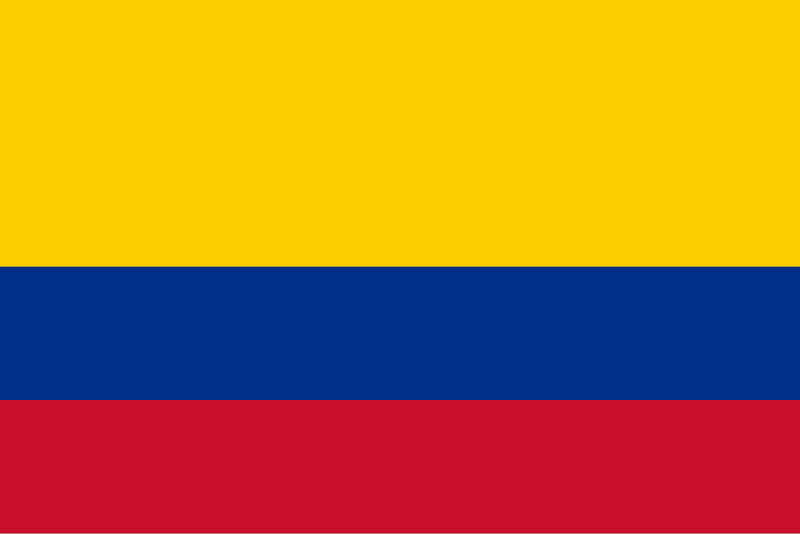Skip to Main Content
Colombia



Disability Definition
According to Law 1618 of 2013, people with disabilities are defined as “Those people who have physical, mental, intellectual, or sensory impairments to medium and by interacting with various barriers including attitudinal factors, may impede their full and effective participation in society, on an equal footing with others.”
Legislation
Colombia has the following disability legislation:
LAW 361 OF 1997 for the creation of mechanisms of social integration of people with disabilities. The State will guarantee and ensure that in its legal system no discrimination prevails over any inhabitant in its territory, due to personal, economic, physical, physiological, psychological, sensory and social circumstances.
LAW 1618 DE 2013 By means of which provisions are established to guarantee the full exercise of the rights of persons with disabilities. The purpose of this law is to guarantee and ensure the effective exercise of the rights of persons with disabilities, through the adoption of measures of inclusion, affirmative action and reasonable accommodation and eliminating all forms of discrimination based on disability, in accordance with Law 1346 of 2009.
LAW 2177 DE 2017 which states "The objective is to coordinate the actions that the private sector carries out to contribute to the exercise of rights and the social, labor and productive inclusion of people with disabilities."
Additionally, Colombia ratified the UN Convention on the Rights of People with Disabilities on May 10, 2011.
References: DECRETO 2177 DE 2017 (suin-juriscol.gov.co) and Colombia_Law-1618-through-which-provisions-are-established-to-guarantee-the-full-exercise-of-the-rights-of-persons-with-disabilities.pdf (un.org)
Employer Legal Requirements
Preference to companies with at least 10% employees with disabilities in the bidding processes for public contracts, under otherwise equal conditions.
The apprenticeship quota that the employer is obliged to hire will be reduced by 50%, if those hired by him are persons with proven disabilities of not less than 25%.
Reference: Disability in Colombia: Definition, Laws, Employment and Social Status (wecapable.com)
Accessibility Requirements
The Colombian Act 1618 of 2013 requires “the State, both in its national and territorial entities, to ensure…the rights of persons with disablities and the elimination of all forms of discrimination.”Relevant conditions and measures that facilities and information services must meet to adapt the environment, products and services, as well as objects, tools and utensils, in order to ensure access for people with disabilities, on equal terms, to the physical environment, transport, information and communications, including information systems and technologies and communications, both in urban and rural areas. The technical aids will be made with appropriate technology taking into account height, size, weight and need of the person.
With regard to access to information, knowledge and culture, it is important to highlight the issuance of Colombian Technical Standard (NTC) 5854 which establishes specific rules for web accessibility and mentions screen readers, magnifiers, and audio descriptions, among others, as mechanisms to ensure adjustments in access to virtual tools.
Reference: Colombia passes Disability Act (colombiareports.com)
Cultural Norms
Colombia is a state in which persons with disabilities enjoy the special protection of their human rights within the constitutional and legal framework.
The state has advanced particular measures for the improvement of the quality of life of this population, but this has not necessarily had an impact on the opportunity to forge a life that is autonomous, independent and free of violence. Colombia must progress in the recognition of the right of persons with disabilities.
Despite protections, many persons with disabilities still face enormous barriers to access, retention and advancement in employment. In many cases, persons with disabilities continue to be considered by the productive sector and society in general as incapable, unproductive, or a burden for employers. However, a large group of individuals, families and organizations are working tirelessly for work and productive inclusion, slowly gaining new spaces and opportunities.
Reference: Disability in Colombia: Definition, Laws, Employment and Social Status (wecapable.com)
Insights
According to the 2005 census, 6.4% of the Colombian population were reported to be living with some form of disability. But, according to the estimates of the Colombian Constitutional Court and various social organizations more than 15% of people in Colombia may be affected with one or the other type of disability.Statistics on education and employment, drawn on the basis of Demographic Health Survey 2015, shows that there isn’t a great difference between the employment and education percentages of people with disability and their non-disabled counterparts. This is an important indicator as it reaffirms that people with disabilities enjoy equal rights and opportunities as the non-disabled population of Colombia. The unemployment rate in the age group of 15 to 24 is 5% for persons with disabilities and 6% for persons without disabilities. The unemployment rate in the age group of 25 to 64 is 3% for disabled as well as non-disabled Colombians. The percentage of Youth (15-24) not in education, employment or training is 4% for people with disability and 5% for people without disability.
Reference: Disability in Colombia: Definition, Laws, Employment and Social Status (wecapable.com)
Supplier Diversity
Certification is in place for women-owned business enterprises (WeConnect).
Certification is in place for LGBT-owned enterprises through NGLCC Network: Cámara de Comerciantes LGBT de Colombia (CCLGBTco).
NGOs
Fundacion Arcangeles – ArcAngles has a labor inclusion program. More than 850 allied companies participate and more than 1250 jobs have been generated.
Pacto de Productividad – PdP designed comprehensive advice for companies; providing a step by step guide on how-to implement a process of labor inclusion for people with disabilities.
Best Buddies – Secures jobs for people with intellectual and developmental disabilities (IDD). This program educates and empowers people with IDD to be leaders, public speakers, and job holders.
Business Practices/Examples
Talent Sourcing Resources
Incluyeme.com helps companies to hire talent with disabilities. Since the organization started, they helped more than 1,300 people with disabilities find and secure a job. Incluyme.com helps people with disabilities find jobs in order to have a fair opportunity to support themselves and their families just like any other person. They operate in Argentina, Chile, Peru, Paraguay, Colombia, and Mexico.
References
Colombia: Breaking down Barriers to Opportunity: Our impact, their voices: Colombia: Breaking down barriers to opportunity (ilo.org)
